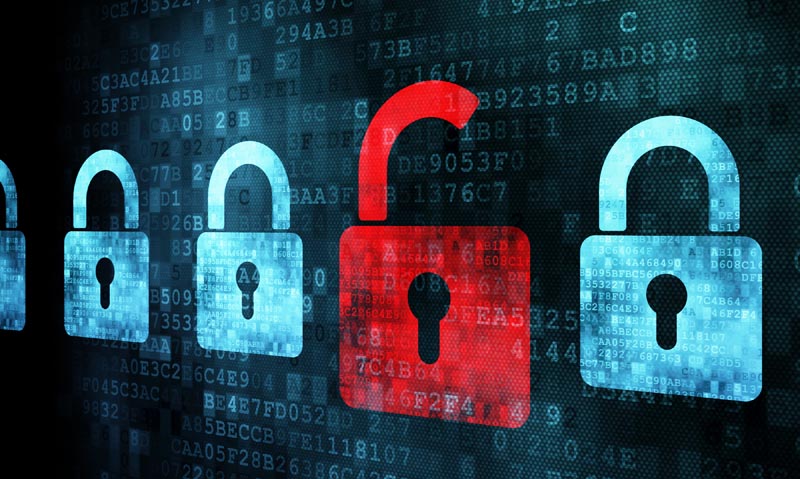You create a vast amount of data, so how can you stay secure?
By 2020 you will produce 1.5 GB of data per day. Biolink.tech founder Eugeny Cheresnev gives his view on using AI to ensure cyber security in the data-driven age.


By Gary Maidment
This decade has seen some exponential gains in technologies like cloud, big data, IoT, and Artificial Intelligence (AI). It’s also seen some monumental hacks. While digital transformation promises digital empowerment and a better quality of life for more people than ever, BioLink.tech founder and CEO, Eugeny Chereshnev, told us at Huawei Eco-Connect 2017 that governments and society have to rethink data storage, security, and AI if we hope to unlock data’s value rather than see it broken into.
The first six months of 2017 saw a slew of serious cyber attacks. The ransomware duo WannaCry and Petya spread globally, with the former affecting certain hospitals in the UK and the latter apparently containing deliberate flaws to mask a larger cyber attack on Ukraine’s infrastructure. In attempts at mass social engineering, a terabyte of US voter data, affecting 198 million Americans, became available on the web, while two days before the French election in May, hackers leaked 9GB of emails from President Emmanuel Macron’s EnMarche party. And, of course, everyone’s aware of the KRACK in the WiFi security protocol.
That much data?
By 2020, the average person will generate 1.5 GB of data per day. Chereshnev scaled that up with some simple math, “If you think about it, everyone in their lifetime is 43.8 terabytes of data,” he says, drilling down to what he believes the average “digital person and their digital appetite” will look like.
For hackers, the data personas of potentially billions of people spread across governments and enterprises are a potential treasure trove, especially because people can’t always control the data that goes online, “We have their voice, how they move, what they do, and technically what they think of,” says Chereshnev. “If this information gets stolen, which it will if we don't change the paradigm, you can duplicate, replicate anybody.” The implications for changing data, advanced identity theft, and cyber crime are obvious, says Chereshnev, “You can of course fake data, and make the police or special services think, ‘Of course it’s this person’.” He goes on to say that hackers have evolved significantly beyond teen geeks hacking away in mom’s basement, “They’re like well-paid specialists, they’re hardcore. Their organizations have a CEO and CTO, they have business processes, they have targets to hit.”
How are we dealing with it?
Not all that well, according to Chereshnev. “Are governments prepared for cyber security changes and data changes? No, they’re not.”
Part of the reason, he believes, is because they perceive threats differently than those on the cutting-edge of technology, “Governments are very conservative by design…They still try and store [data] in a centralized way in huge databases. It doesn't work, it's very inefficient. And when you create a huge database, it’s like a honey pot for hackers...Of course it’s going to get hacked.” With increasing amounts of consumer and enterprise information online, the honey pot is growing: Juniper Research estimates that cybercrime across the globe will cost US$2.1 trillion by 2019.
Moreover, the law can also be a confusing patchwork when it comes to privacy, data protection, and cyber security. For example, in the US there are different laws covering personal data, health data, and financial data, plus regulations for things like data security and payments. Enterprises can be subject to several laws at once, making it confusing for security professionals.

We need to talk
The security issue concerning the data we generate is a conversation that needs to happen sooner rather than later, because – in Chereshnev’s view – the way data is stored is often outdated, attack vectors and data volumes are getting larger, and laws can be complex and confusing.
He supports a diverse and layered approach to storage and security, including technologies like blockchain, and believes that tech enterprises have a key role to play in guiding the conversation, “Facebook, Huawei, Apple, Google, SMEs like us can try to get the law onboard, governments onboard. I would say we can determine what's important. But these should be conversations that are public and transparent.”
That’s not to say that that many governments aren’t taking a proactive role in guiding the cyber security agenda. The UK government, for example, has invested £1.9 billion in a five-year cyber security strategy up to 2021, the next stage of which is an innovation center in London in 2018. The government’s aim is to position the UK as a safe environment for digital businesses and for people to go on online.
AI and its role in privacy
On a consumer level, Chereshnev feels that AI can help people control what data they share when combined with biometric-driven privacy and data ownership, a shift away from today’s algorithms that are designed to monetize your habits and preferences.
At Huawei Connect 2017, Huawei’s rotating CEO Guo Ping said that, “Huawei does not monetize user data; we monetize our technology.” Specifically, Huawei doesn’t monetize data by selling it to others, and this is something that resonates with Chereshnev. He’s very much about “empowering people through data, both its use and protection – rather than monetizing it.” He’s sees AI as the way to achieving this, “An artificial intelligence essence that works solely for you. It learns you. It knows everything about you…But, you get privacy, encryption of traffic, zero advertising, protection from scams, spam.”
After all, says Chereshnev, “AI shouldn’t work to just make sales, it should work for making the world a better place.”
In a time of increased cyber threats, AI is crucial facet of cyber security’s armor, alongside government strategies that guide enterprises and individuals to ensure the data age remains secure for all.




